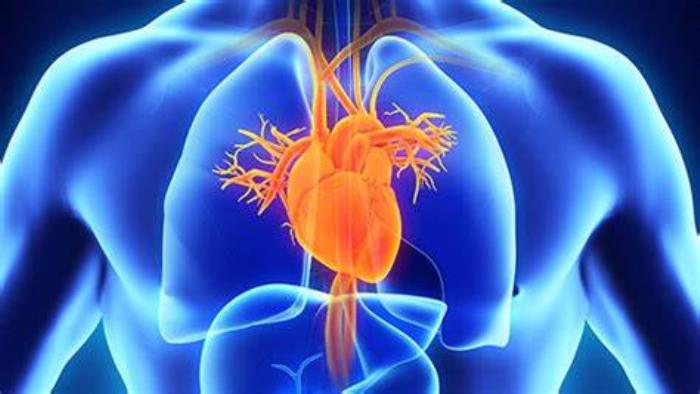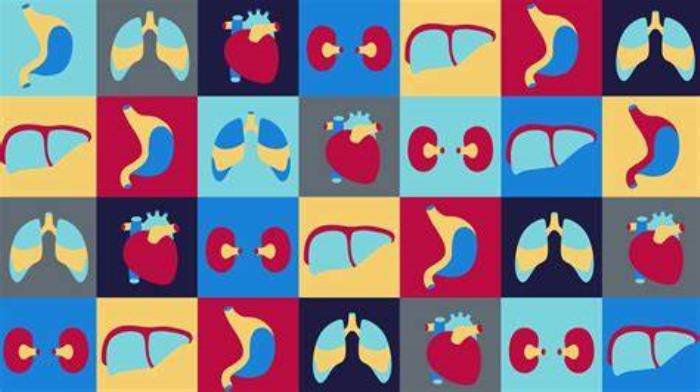A heart transplant is a surgical procedure that involves replacing a diseased heart with a healthy donor heart. This procedure is critical for patients suffering from terminal heart diseases such as congestive heart failure or severe coronary artery disease. In India, the demand for heart transplants has been steadily increasing due to rising incidences of lifestyle-related heart diseases. However, the success of a heart transplant largely depends on the matching process between the donor and recipient.
Medical disclaimer: This content is for general awareness and does not replace a doctor’s consultation. For diagnosis or treatment decisions, consult a qualified specialist.
The Process of Organ Donation in India
Organ donation in India is governed by the Transplantation of Human Organs and Tissues Act, which facilitates both living and deceased organ donations. Deceased organ donation is particularly crucial for heart transplants, as the heart must be retrieved from a donor shortly after death, typically from a brain-dead individual. Awareness campaigns and initiatives by government and non-governmental organizations aim to promote the importance of organ donation, helping to bridge the gap between the demand and supply of organs.
The Role of Organ Matching in Heart Transplants
Organ matching is a critical step in the transplant process, ensuring that the donor heart is compatible with the recipient. This process involves evaluating various factors such as blood type, tissue type, and the size of the heart. Proper matching minimizes the risk of organ rejection and enhances the chances of a successful transplant outcome. In India, organ matching is conducted by specialized transplant coordinators and medical teams who adhere to strict protocols.

Key Factors Considered in Heart Organ Matching
When matching a donor heart to a recipient, several key factors are considered. The most critical are ABO blood group compatibility, which is fundamental to prevent acute rejection. Additionally, the Human Leukocyte Antigen (HLA) typing is performed to assess tissue compatibility. Other factors include the recipient's age, weight, and overall health, which influence the suitability of the donor heart. These factors collectively ensure a higher success rate post-transplant.
The Importance of Blood Type Compatibility in Heart Transplants
Blood type compatibility plays a vital role in the organ matching process. There are four primary blood types: A, B, AB, and O. Each heart transplant requires that the donor and recipient blood types are compatible to avoid severe immune responses. For instance, a person with blood type O can donate to any other blood type, while a person with blood type AB can receive from all types. This compatibility is crucial to ensure the recipient's body accepts the new heart.
Understanding Tissue Typing in Heart Transplants
Tissue typing, specifically the determination of HLA markers, is essential in the organ matching process. HLA markers are proteins found on the surface of cells that play a significant role in the immune response. The closer the match between the donor and recipient HLA markers, the lower the likelihood of rejection. In India, advanced laboratory techniques are employed to perform tissue typing, which significantly enhances the success rates of heart transplants.
Assessing Size Compatibility for Heart Transplants
Size compatibility between the donor heart and the recipient is crucial for a successful transplant. A heart that is too large or too small can lead to complications post-surgery. Surgeons evaluate the anatomical size of the donor heart in relation to the recipient’s thoracic cavity and body size. Typically, a donor heart must be within 20% of the recipient's heart size. This ensures optimal functioning of the transplanted heart within the recipient's body.
The Role of Transplant Centers in Organ Matching
In India, specialized transplant centers play a pivotal role in the organ matching process. These centers are equipped with advanced technology and a dedicated team of healthcare professionals, including transplant coordinators, surgeons, and immunologists. They are responsible for evaluating potential recipients, conducting the necessary tests for organ compatibility, and maintaining a registry of available organs. Their expertise is essential for ensuring timely and efficient heart transplant procedures.
Waiting Lists and Organ Allocation Systems in India
Due to the limited availability of donor hearts, waiting lists are maintained for potential recipients. The allocation system prioritizes patients based on medical urgency, compatibility, and time spent on the waiting list. In India, the allocation process is regulated by the National Organ and Tissue Transplant Organization (NOTTO), which oversees the equitable distribution of organs across the country. This system aims to ensure that those in dire need receive timely transplants.

Challenges in Organ Matching for Heart Transplants
Despite advancements in medical technology, organ matching for heart transplants in India faces several challenges. The primary issue is the shortage of available donor hearts, leading to long waiting times for patients. Additionally, the complexity of matching criteria, including blood type and tissue compatibility, can further complicate the process. Public awareness and education about organ donation are crucial to overcoming these challenges and improving transplant outcomes.
Post-Transplant Monitoring and Follow-Up Care
After a heart transplant, recipients require meticulous monitoring and follow-up care to ensure the success of the procedure. Regular check-ups are essential to assess the function of the transplanted heart and to detect any signs of rejection or complications early. Patients are prescribed immunosuppressive medications to prevent rejection, and adherence to medication and lifestyle changes is critical for long-term success. A multidisciplinary team often manages the post-transplant care.
Impact of Organ Matching on Heart Transplant Success Rates
The effectiveness of organ matching directly influences the success rates of heart transplants. Studies indicate that better matched organs lead to lower rates of rejection and improved long-term outcomes. In India, ongoing research aims to refine organ matching techniques and enhance patient selection criteria. Improved matching protocols are expected to contribute significantly to increasing the overall success rates of heart transplants in the country.
Ethical Considerations in Organ Matching and Transplantation
Ethical considerations are paramount in the field of organ transplantation, particularly in organ matching. Issues such as informed consent, equitable access to transplantation, and the potential for organ trafficking must be addressed. In India, ethical guidelines are established to ensure that organ donation and transplantation processes uphold the dignity and rights of both donors and recipients. Continuous training and awareness programs for healthcare professionals help to navigate these ethical complexities.
The Future of Heart Transplants and Organ Matching in India
The future of heart transplants in India looks promising with advancements in technology and medical practices. Innovations such as 3D printing of organs and enhanced imaging techniques are expected to improve organ matching accuracy. Additionally, increasing public awareness about organ donation may lead to a rise in the number of available donor hearts. Research into bioengineering and artificial hearts is also underway, potentially revolutionizing the field of cardiac transplantation.
Patient Education and Awareness on Heart Transplants
Patient education is crucial for individuals awaiting heart transplants. Understanding the organ matching process, the importance of timely medical evaluations, and adherence to treatment plans can significantly impact outcomes. Educational programs and resources provided by healthcare institutions help demystify the transplant process for patients and their families. Increased awareness can also promote organ donation, ultimately improving the availability of donor hearts.
How to Avoid Common Post-Surgery Infections After a Heart Transplant
Find out practical steps to prevent post-surgery infections following a heart transplant. From maintaining proper hygiene to adhering to prescribed immunosuppressive medications, these strategies help safeguard against infections that can compromise recovery. Learn how to work closely with your healthcare team to stay healthy and ensure a smooth recovery.
The Role of Personalized Medicine in Heart Transplant Success
Discover how personalized medicine enhances heart transplant success. This innovative approach tailors medical treatment to the unique genetic, environmental, and lifestyle factors of each patient, leading to improved outcomes. By minimizing the risk of organ rejection and optimizing post-transplant recovery, personalized medicine is revolutionizing heart transplantation.
Role of Family in the Organ Donation Process
Family involvement is essential in the organ donation process. Families of potential donors play a critical role in making the decision to donate organs after the death of a loved one. Open discussions about organ donation within families can lead to better-informed decisions and increase the likelihood of donation. Healthcare providers often engage with families to provide information and support during this challenging time, emphasizing the life-saving impact of their decision.
Best Heart Transplant in India
The Best Heart Transplant in India offers a life-saving solution for patients with end-stage heart failure, using advanced surgical techniques and comprehensive post-transplant care.
Best Heart Transplant Hospitals in India
The Best Heart Transplant Hospitals in India provide state-of-the-art facilities, skilled transplant specialists, and multidisciplinary teams for seamless patient care and recovery.
Heart Transplant Cost in India
The Heart Transplant Cost in India is structured to offer affordability while ensuring access to world-class transplant services and comprehensive care packages.
Best Heart Transplant Surgeons in India
The Best Heart Transplant Surgeons in India have extensive experience in performing complex transplants, ensuring precise techniques and personalized patient care for optimal outcomes.
FAQs About Heart Transplant Organ Matching in India
What is the most important factor in organ matching for heart transplants?
The most important factors in organ matching for heart transplants are blood type compatibility and HLA typing. These factors help minimize the risk of rejection and ensure a successful transplant.
How long does the organ matching process take?
The organ matching process can vary in duration, depending on the availability of donor organs and the recipient's specific needs. Typically, it involves several tests and evaluations that may take a few days to weeks.
Can a heart transplant be performed if there is no perfect match?
Yes, a heart transplant can still be performed even if there is no perfect match. Surgeons consider various factors, including the urgency of the recipient's condition, and may proceed with a transplant if the potential benefits outweigh the risks.
What happens if a matched heart is not accepted by the recipient?
If a matched heart is not accepted by the recipient, it may lead to acute rejection, which can be life-threatening. Recipients are closely monitored post-transplant, and treatments are available to manage rejection if it occurs.
How can I become an organ donor in India?
To become an organ donor in India, individuals can register with an organ donation registry or express their wishes to family members. It is crucial to have discussions about organ donation to ensure that family members are aware of one's intentions.